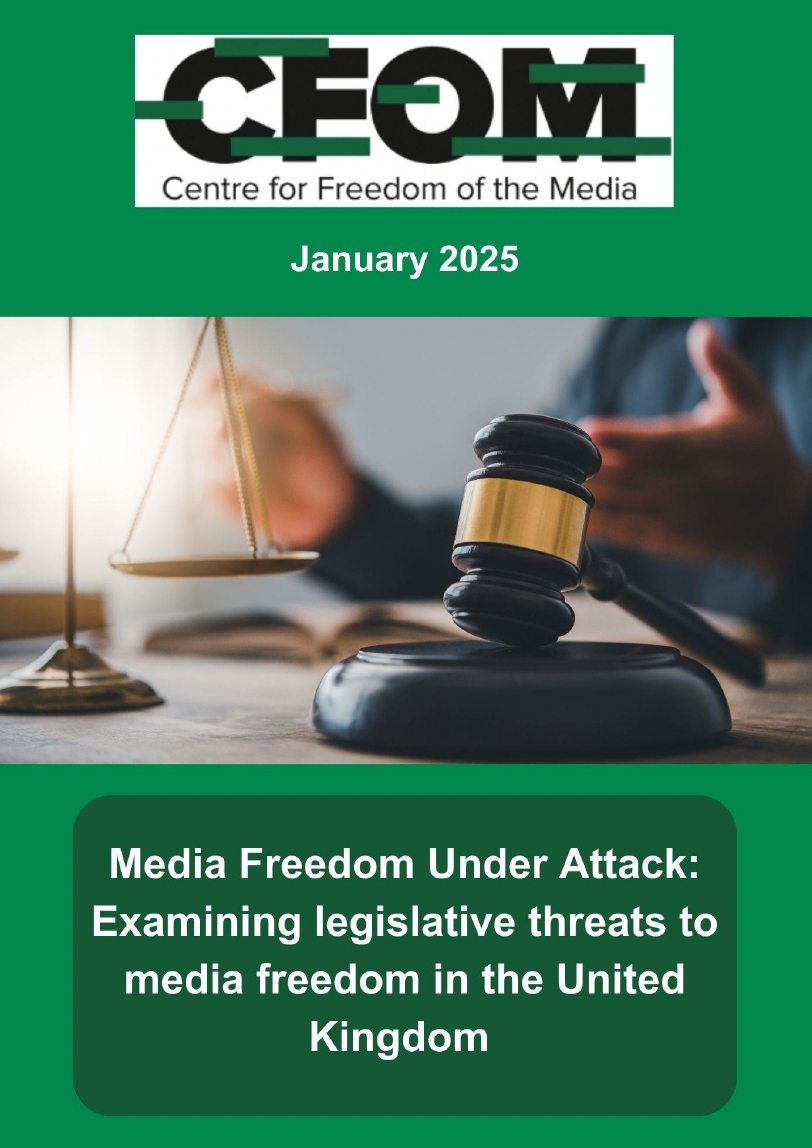
In October 2023, CFOM hosted a workshop with attendees from academia, journalism organisations, and civil society organisations to discuss the legislative threats to journalism in the United Kingdom. The one-day workshop, held in person at the University of Sheffield, drew on a wide range of expertise on the weaknesses or failings in the country’s current or prospective framework of laws and practices in this area. In January 2023 Index on Censorship published the worrying findings of a survey which categorised the UK’s environment for media freedom as only ‘Partially Open’.
The negative ranking was based on modelling data from numerous sources, including the World Press Freedom Index published by Reporters without Borders (RSF), the Committee to Protect Journalists (CPJ), UNESCO’s Observatory of Killed Journalists, the Global Cybersecurity Index, the Varieties of Democracy research project (V-Dem) and Netblocks’ Cost of Shutdown Tool (COST).
In the course of five thematic sessions participants examined the evidence for and against the proposition that the UK’s record for ensuring the protection of media freedom falls short of the standards and norms in international law in four particular areas: Strategic Lawsuits against Public Participation (SLAPPs), the National Security Act 2023, the Online Safety Act 2023, and the regulatory and self-regulatory environment following the anticipated repeal of the controversial Section 40 of the Crime and Courts Act 2023, adopted following the Leveson Inquiry. Briefly, they considered the question of the extent to which the UK can or cannot rightfully claim (as the government sometimes does) that this country is a significant “standard-setter” on important media freedom issues in the wider European or international context.
Following the conclusion of the workshop, CFOM has published a report that seeks to summarise the discussions and it records a number of recommendations for remedial action shared by those who took part.
